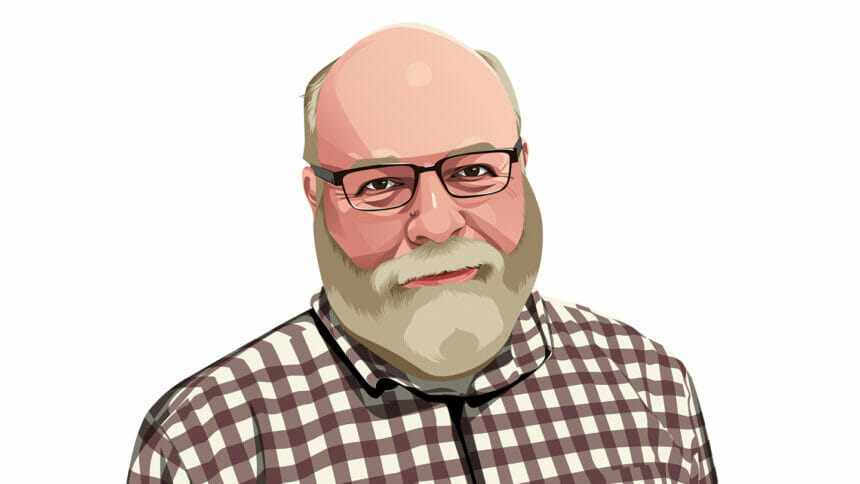
While plodding a narrow, precipitous path high on the flank of Mt. Rainier this week, I saw a father and his young daughter approaching on the trail. She was an adorable child of maybe 4 or 5, all decked out in the latest and cutest outdoor gear, and I stopped to commend him for turning her into an avid hiker at such a young age.
Before they passed, she looked up at me, pointed to the sheer drop down to the raging river, and calmly pronounced, “If you fall over, you will die.”
Now she seemed a little less adorable, more like one of the demon twins in “The Shining” than Dorothy from “The Wizard of Oz.” I’m not great with heights, or more accurately, frequently terrified. So though she was right, I was resentful of her warning. The last thing I wanted was to have my pristine fortress of denial blown apart with her uninvited truth bomb.
“Shouldn’t you be at the Barbie movie, instead of needlessly freaking out old people in the wilderness?” I resisted asking. Because if I thought about falling off every cliff edge I nervously pass, I’d probably never leave the trailhead.
In long-term care, it should be a relief that this creepy child won’t be showing up to give any similarly unwelcome proclamations at your next facility all-staff. Because if leaders and employees were constantly reminded of the many dangers and challenges you regularly face, you might opt not to hike this trail anymore.
If you’re an owner, you’re always battling an existential menace of some kind. If you’re a facility leader, managing daily turmoil is an accepted feature, not a bug, as are the more macro threats of staffing shortages and regulatory burdens.
If you’re a nurse or CNA, you’re sad sometimes. You lose people you treasure. Stories from the pandemic abound of staff going far beyond their actual responsibilities to serve in any way possible, even sitting up all night with isolated residents so they wouldn’t die alone.
You also regularly put yourselves at risk for your residents and patients. That concept was heartbreakingly on display this week, as a nurse at a Michigan nursing home died while saving the life of a wandering patient.
In other words, folks who work in long-term care typically feel the dangers go with the territory, and further warnings are unnecessary and unwelcome. No matter what unprecedented threat might arise, evidence suggests you’re going to keep doing what you do.
You’re going to be tired beyond belief. You’re going to be passionate and dedicated. You’re going to be vulnerable. You’re going to put yourselves at physical and emotional risk. Regardless of what a creepy 5-year-old might tell you.
Things I Think is written by Gary Tetz, a two-time national Silver Medalist and three-time regional Gold and Silver Medal winner in the Association of Business Press Editors (ASBPE) awards program, as well as an Award of Excellence honoree in the APEX Awards. He’s been amusing, inspiring, informing and sometimes befuddling long-term care readers worldwide since the end of a previous century. He is a writer and video producer for Consonus Healthcare Services in Portland, OR.
The opinions expressed in McKnight’s Long-Term Care News guest submissions are the author’s and are not necessarily those of McKnight’s Long-Term Care News or its editors.
Have a column idea? See our submission guidelines here.





